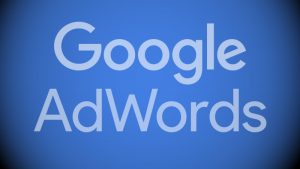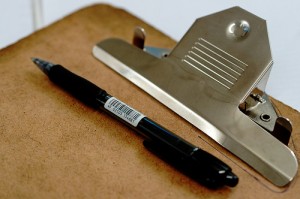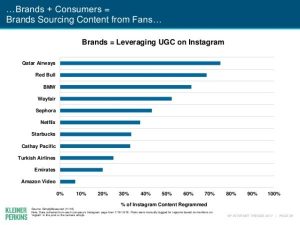May 16, 2024
Two branding pros are looking to upend the agency model and take the pain out of the name game.
Mark Liney won’t name the names, but he can’t shake the memory of an unusual brand-naming project that happened at an agency for the company’s biggest client. Writers weren’t included in the budget, so the creative director on the project decided to throw some sheets of paper up on a wall and instructed his team to jot ideas on them on their way to the kitchen or bathroom. At the end of the week, they’d all have a beer and take a look at what they had produced.
“I’m thinking, Oh my God, if the client could see what their $50,000 to $60,000 was actually going towards, they’d be absolutely horrified.”
Liney hails from powerhouse creative agencies that include Landor and DesignStudio. He and his business partner, Jack Wimmer, have worked with a vast spectrum of brands leading creative strategy and client services. This week, they’re launching what they hope will be a solution to that $50,000 problem: Monika, an AI-infused platform that promises users 20 solid brand names in five days for a flat fee of $5,000.
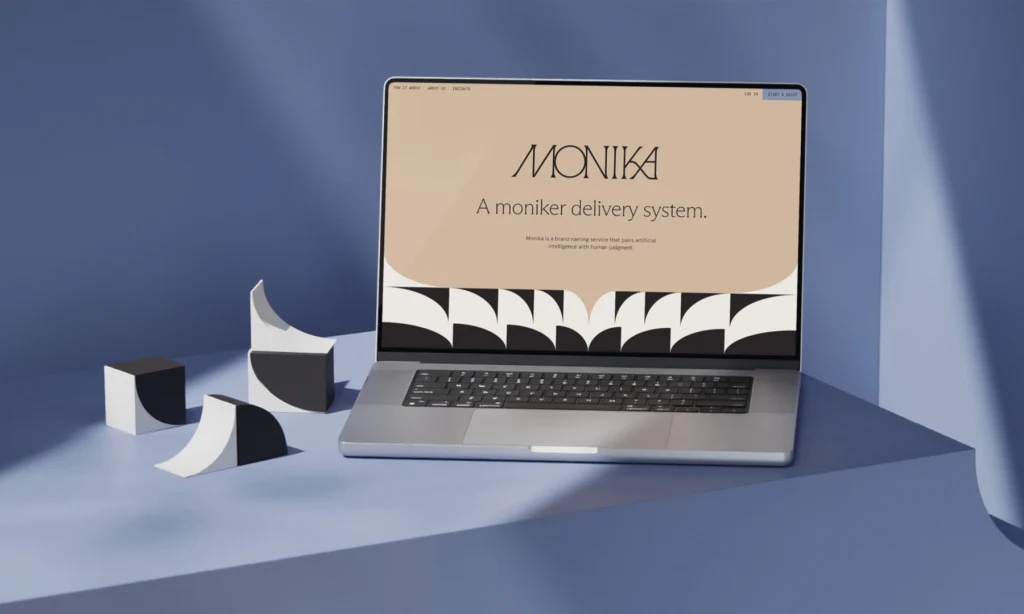
A more efficient way to name
Monika started with Liney and Wimmer’s mutual annoyance with the status quo. “This is really the result of us looking at the whole process of brand strategy and picking out the thing that we are most frustrated with,” Wimmer says.
Brand-naming in particular, was a due for a rethink. Liney says a naming project costs around $40,000–$50,000 on average. It’s a process that can drag on for weeks and upend project timelines. Often, trademark clearance isn’t done until the very end, nuking top candidates that were labored over. On top of all that, the whole thing is often positioned as a mystic and shrouded process, laden with pseudoscience. (“It’s a lot of pulling the client in for a workshop and asking them what their mom’s star sign is, and trying to get to some deeper meaning to name their pet food products,” Wimmer says.)
With Monika, the duo wants to deliver a more straightforward solution by using AI. You might assume that your $5,000 will simply put Liney and Wimmer to work asking ChatGPT for some names, and tossing the results into a Google Doc. They insist that is not the case.
Users start with a 15- to 20-minute online survey where they respond to prompts about their business, which markets it will operate in, who their target audience is, personality attributes (think “warm,” “sympathetic,” “empathetic”), how conventional/unconventional they want their name to be, and so on. After users pay the one-time fee, Monika—a play on “moniker,” and, yes, they used their own program to come up with it—gets to work.
A naming model
Liney and Wimmer partnered with a trio of data scientists to develop the dozens of models that power Monika. We tend to think of AI as sapping the creativity out of any given project, but here, creating the models proved to be a surprisingly inventive endeavor. The team studied and emulated how the best in the naming business go about the process; they built models around high-performing names across markets and sectors; they even trained a model to generate fake (and ultimately new, trademarkable) words.
Some of the models focus on the straightforward task of generating names by deriving relationships between the intake survey data and relevant metaphors, adjectives, and colloquialisms. Other models are more random. One of the models powering Monika combs the names of emerging artists on Spotify’s New Music Friday playlist for interesting words that could fit the client; another scans obscure and random Wikipedia pages for possibilities; yet another scours novels.
Ultimately, they all go to work with the overarching goal of building a long list of options. AI then decides which words could be a contender, generating 1,000–1,500 options that are automatically checked against a global trademark database. And that’s where the human comes in. Liney and Wimmer then cut that hefty list down to 20 names based on their collected wisdom, giving clients a slick deck that includes their opinion on the top three contenders.
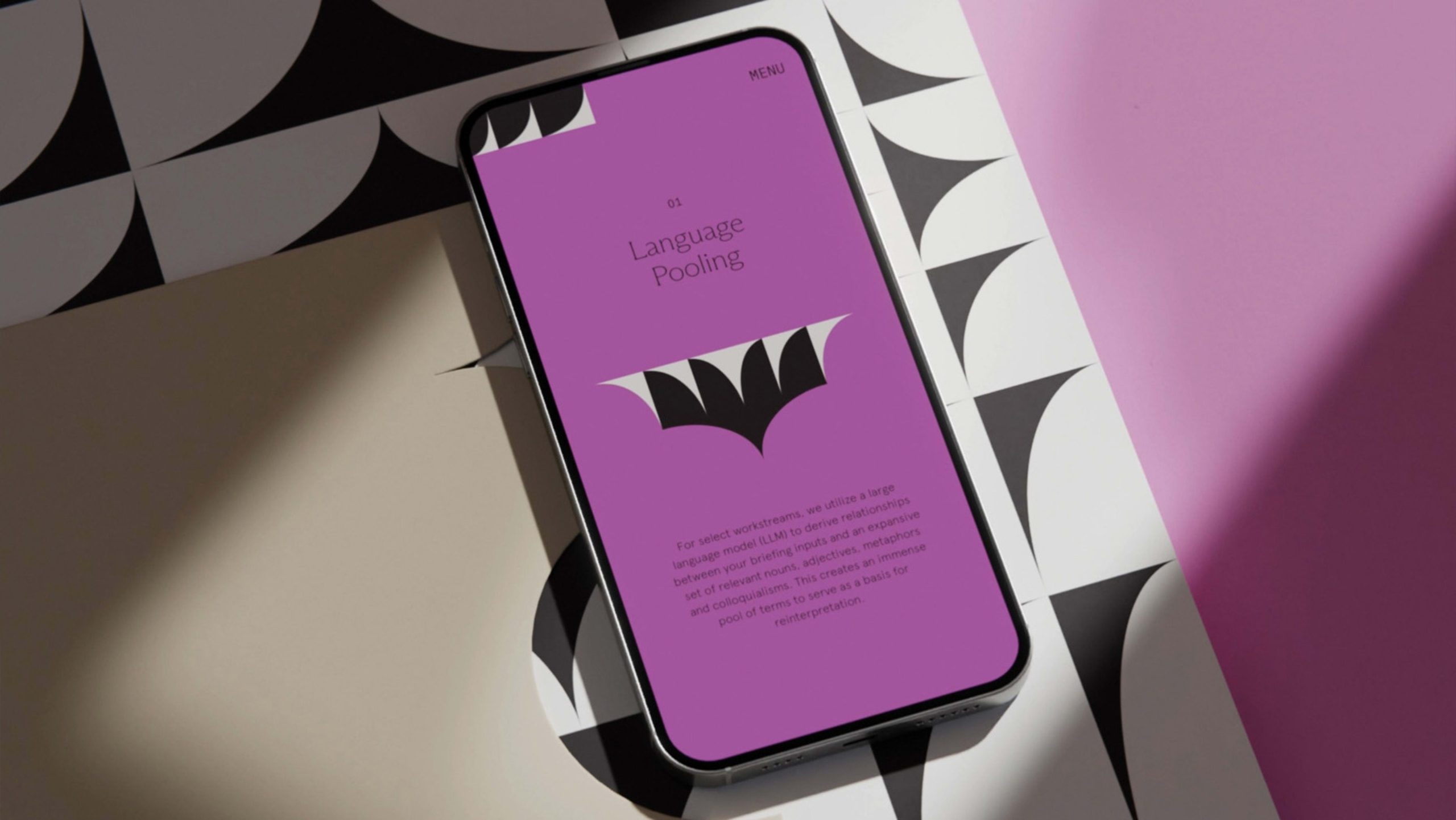
“We’re not trying to create a generator that’s going to spit out 20 perfect names,” Wimmer says. “That’s impossible. If we’re thinking about the realities of coming up with creative material, we have to generate a ton of fat—we have to go wide, we have to make mistakes, we have to come up with bad ideas, just like humans. And we have to go through and identify which of those are actually gems.”

The target audience
Liney says Monika’s target audience is startups and companies looking to scale, as well as enterprise businesses in, say, CPG or big pharma—businesses that turn out product en masse and likely don’t have the bandwidth or patience for the typical drawn-out agency process.
“Monika is not going to be for everyone,” he says. “There are going to be certain businesses out there that want to pay an agency to hold their hand through the process. But I think there’s a huge number of clients that don’t need that level of rigor. It shouldn’t cost what it costs, it shouldn’t take as long as it takes—there is a much smarter way to get to equally good, if not better, outcomes.”
Liney figures agencies will also be interested in using the tool as part of their naming work. And he’s likely happy about that, so long as he never again has to see people jot down ideas on a stray sheet of paper on their way to the bathroom.
ABOUT THE AUTHOR
Fast Company
(14)
Report Post




